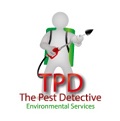Pest Control - Flies
Categories
SIGNS OF RODENTS
WHAT TO LOOK FOR
Fly Control

Facts Identification & Control
More than 100 pathogens are associated with the house fly, including Salmonella, Staphylococcus, E. coli and Shigella. These pathogens can cause disease in humans and animals, including typhoid fever, cholera, bacillary dysentery and hepatitis. Sanitation is critical to controlling these pests, but accurate identification is essential for successful fly control. Here are some other things you should know about flies and fly control:
- Depending on the species, the life expectancy of a fly is eight days to two months or, in some cases, up to a year
- Flies belong to the order Diptera, meaning two wings
- Flies plague every part of the world except the polar ice caps
- One pair of flies can produce more than 1 million offspring through their offsprings’ offspring in a matter of weeks
- Millions of microorganisms may flourish in a single fly’s gut, while a half-billion more swarm over its body and legs
- Flies spread diseases readily because they move quickly from rotting, disease-laden garbage to exposed human foods and utensils
- Because they only have two wings, flies land often and therefore can deposit thousands of bacteria each time they land
- Every time a fly lands, it sloughs off thousands of microbes. If a fly lands on food or utensils, customers may ingest germs that can trigger serious illness such as diarrhoea, food poisoning, meningitis and bloodstream infections
When flies feed on waste, they collect pathogens on their legs and mouths. These pathogens are then transferred to food on tables or counters when a fly lands again. Flies regurgitate on solid food then they eat the liquid. They are capable of transmitting disease when they vomit, groom themselves or just walk on surfaces.
The best way to repel flies is through simple, preventive measures. Flies prefer warm temperatures and are most active from late spring to early autumn. In order to best repel flies during this time, limit access to your home as much as possible, keeping doors and windows closed. You may also choose to screen windows, doors and vents. Keep garbage cans clean and securely closed. Keeping surfaces clean will make your home less appealing to flies. For best results, contact a pest control professional to discuss extermination options.
What Pest Detective Does
There are 4 main types of fly in the UK from Common House fly, Lesser fly, Fruit Fly to Cluster fly. All of these can be dealt with quickly and efficiently. Once we have established what type of fly you have, we aim to be with you within 90 minutes of the initial call so we can begin treatment.
Fly Control

Facts Identification & Control
More than 100 pathogens are associated with the house fly, including Salmonella, Staphylococcus, E. coli and Shigella. These pathogens can cause disease in humans and animals, including typhoid fever, cholera, bacillary dysentery and hepatitis. Sanitation is critical to controlling these pests, but accurate identification is essential for successful fly control. Here are some other things you should know about flies and fly control:
- Depending on the species, the life expectancy of a fly is eight days to two months or, in some cases, up to a year
- Flies belong to the order Diptera, meaning two wings
- Flies plague every part of the world except the polar ice caps
- One pair of flies can produce more than 1 million offspring through their offsprings’ offspring in a matter of weeks
- Millions of microorganisms may flourish in a single fly’s gut, while a half-billion more swarm over its body and legs
- Flies spread diseases readily because they move quickly from rotting, disease-laden garbage to exposed human foods and utensils
- Because they only have two wings, flies land often and therefore can deposit thousands of bacteria each time they land
- Every time a fly lands, it sloughs off thousands of microbes. If a fly lands on food or utensils, customers may ingest germs that can trigger serious illness such as diarrhoea, food poisoning, meningitis and bloodstream infections
When flies feed on waste, they collect pathogens on their legs and mouths. These pathogens are then transferred to food on tables or counters when a fly lands again. Flies regurgitate on solid food then they eat the liquid. They are capable of transmitting disease when they vomit, groom themselves or just walk on surfaces.
The best way to repel flies is through simple, preventive measures. Flies prefer warm temperatures and are most active from late spring to early autumn. In order to best repel flies during this time, limit access to your home as much as possible, keeping doors and windows closed. You may also choose to screen windows, doors and vents. Keep garbage cans clean and securely closed. Keeping surfaces clean will make your home less appealing to flies. For best results, contact a pest control professional to discuss extermination options.
What Pest Detective Does
There are 4 main types of fly in the UK from Common House fly, Lesser fly, Fruit Fly to Cluster fly. All of these can be dealt with quickly and efficiently. Once we have established what type of fly you have, we aim to be with you within 90 minutes of the initial call so we can begin treatment.
SIGNS OF RODENTS
WHAT TO LOOK FOR
Pest Detective Discounts
Armed Forces Discount

Pensioner Discount

Categories
Have Any Question!
DON'T HESITATE TO CONTACT US ANY TIME.
Have Questions ?
Call us now
Head Office: 01202 042814
About Pest Detective
We specialize in 23 different kinds of pest, and we're also qualified to handle a much wider range of pest control needs. If you have a pest problem that's not covered in our pest library, be sure to contact us for information about what services we offer for your particular needs.
We are open
on Call
24 hours - 7 days a week
Services
Need support?
Drop us an email
Contact us
Locations
- The Pest Detective - 01202 042814
- Pest Detective Poole - 01202 042814
- Pest Detective Bournemouth - 01202 042814
- Pest Detective Blandford - 01258 395021
- Pest Detective Ringwood - 01425 896029
- Pest Detective Wareham – 01929 498149
- Pest Detective Dorset - 01305 360649
- Pest Detective Dorchester - 01305 360649
PEST DETECTIVE SOCIAL
PEST DETECTIVE SOCIAL
PEST DETECTIVE COVERAGE
Poole: Branksome, Broadstone, Canford Cliffs, Sandbanks,, Charminster, ,Hamworthy, Oakdale, Upton, Westborne, Canford Heath, Parkstone, Penhill, Lytchett Minster, West Parley, West Moors, and Wimborne.
Bournemouth: Ashley Heath, Boscombe, Charminster, Moordown, Kinson, Kings Park, Queens Park, Winton, Ferndown , Southbourne, Meyrick Park, Pokestown, Mudeford ,Verwood, West Parley, West Moors and Highcliffe.
Blandford: Child Oakford, Milton Abbas, Sturminster Marshall, Sturminster Newton, Hazelbury Bryan, Marnhull, Tarrent Hinton, Milborne St Andrew, Witchampton and Wimborne.
Wareham & Swanage: Purbecks, Bere Regis, Bindon Abbey, Corfe castle, Worth Matravers, Moredon and Wool.
Ringwood: West Hampshire, Bransgore, Burley, Fordingbridge, Highcliffe and New Milton.
Dorset: Poole, Bournemouth, Christchurch, Wareham, Swanage, Purbecks, Wimborne, Blandford, Ringwood, Dorchester and Weymouth..
Dorchester & Weymouth: Abbotsbury, Puddletown, Upwey, Portland and Warmwell.
© 2016 The Pest Detective - All Rights Reserved | Site Map | Terms & Conditions | Privacy Policy

